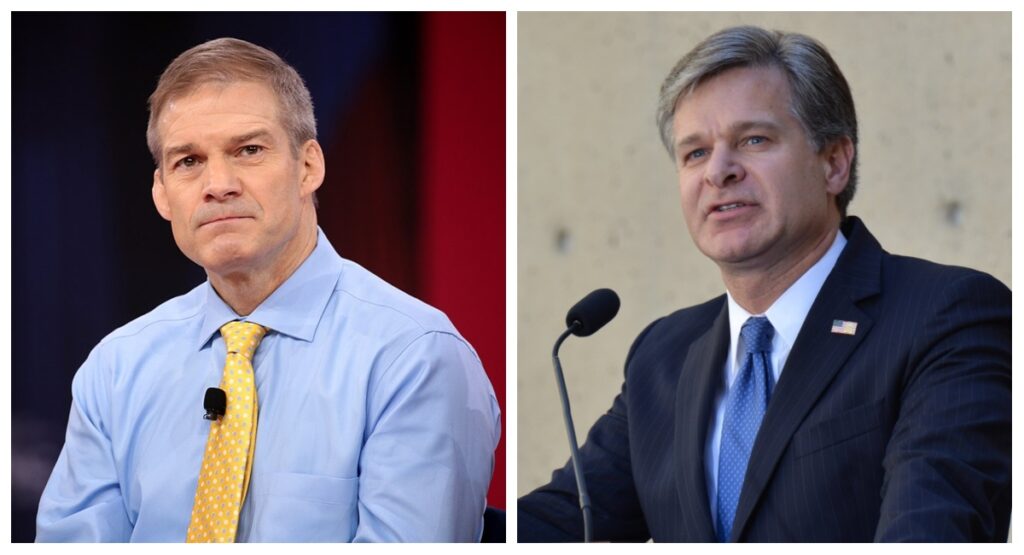Does Congress have oversight authority over the FBI when a Democratic president is in the White House? Maybe…maybe not.
Originally published at WND News Center. Used with permission.
When members of Congress were told by a whistleblower that the FBI has a document that outlines a scheme involving a “foreign national” and Joe Biden for Biden to be paid to make decisions, they subpoenaed it from the bureau.
Officials there refused to provide it.
And they contend that they believe that “the Executive” is not required to “supply the fruits of its own investigation efforts to Congress.”
It’s a statement that isn’t sitting welling members of Congress.
A report from Just the News noted, “House Oversight Committee Chairman James Comer and Iowa Republican Sen. Chuck Grassley on Wednesday fumed as the FBI failed to meet a subpoena deadline to provide congressional investigators with a form that allegedly details a bribery scheme between then-Vice President Joe Biden and a foreign national.”
The report said Comer and Grassley agreed that the FBI’s response failed.
“It’s clear from the FBI’s response that the unclassified record the Oversight Committee subpoenaed exists, but they are refusing to provide it to the committee,” Comer explained. “We’ve asked the FBI to not only provide this record, but to also inform us what it did to investigate these allegations.”
He said, “The FBI’s position is ‘trust, but you aren’t allowed to verify.’ That is unacceptable. We plan to follow up with the FBI and expect compliance with the subpoena.”
Grassley said, in the report, “While the FBI has failed to produce the specific document by the subpoena deadline, their offer to provide an accommodation process in response to our legitimate request indicates the document is real.
“So the question remains, what did the FBI do to investigate very serious allegations from an apparent trusted FBI source implicating then-Vice President Biden? Today’s letter from the FBI raises additional questions, including whether the FBI has an open investigation based on these allegations. The American people pay the FBI’s salaries, and they’re entitled to a fulsome response.”
GOP members revealed earlier this month, according to a trusted whistleblower, the FBI had a form, an FD-1023, “detailing the allegations” about Biden.
Separately, a congressional committee this week released reams of details about how multiple foreign governments had made payments to many members of the Biden family – without any apparent services or products being rendered. For example, Biden family members were given $1 million by a Romanian who later was convicted of corruption.
The family long has been described by critics as a “pay-for-play” influence-peddling entity.
Faced with a subpoena for the document, acting Assistant Director of the bureau’s Office of Congressional Affairs Christopher Dunham refused.
He told Comer he was taking into consideration the “executive branch confidentiality interests and law enforcement responsibilities.”
He suggested a way of “optimal accommodation” to resolve the congressional demand.
And he argued for the suppression of information about what could be an impeachable offense: a sitting vice president being involved in a bribery scheme. He claimed, “You have asked for what you say is a ‘precise description’ of an ‘alleged criminal scheme’ contained in is a single FD-1023 report. You express concern that the FBI has inappropriately ‘failed to disclose’ such a report ‘to the American people.’ It is critical to the integrity of the entire criminal justice process and to the fulfillment of our law enforcement duties that FBI avoid revealing information – including unverified or incomplete information— that could harm investigations, prejudice prosecutions or judicial proceedings, unfairly violate privacy or reputational interests, or create misimpressions in the public.”
He added, “Often, even confirming the fact of the existence (or nonexistence) of an investigation or a particular piece of investigative information can risk these serious harms. That is why it is – and has long been – standard practice for law enforcement agencies to decline to confirm or deny such a fact. Thus, your request for a single FD-1023 report that you say includes a ‘precise description’ of an ‘alleged criminal scheme’ risks the harms that our confidentiality rules protect against.”
He admitted that Congress has the “authority to secure the information needed to perform its constitutional role of legislating on behalf of the American people.”
But he said the DOJ holds that “Congress’s authority to seek information ‘does not lead inexorably to the conclusion that the Executive must supply the fruits of its own investigation efforts to Congress.’”



